Follow us on Telegram for the latest updates: https://t.me/mothershipsg
I first heard of Baker’s Brew’s cakes a couple of years ago when a friend ordered a customised cake for a birthday party.
It had a pretty raunchy design – a Calvin Klein underwear – the kind that you would associate with sub-par taste, either too sweet or too cakey.
But as I took a bite of the fluffy and light plain vanilla cake and its rich buttercream, I found myself reaching for another bite and another bite, while my mouth was still stuffed with cake.
After that, be it birthdays, graduation parties or special occasions like Mother’s Day, there was always a Baker’s Brew cake, to top off the celebrations.
So, when the opportunity came for me to speak to the founder of Baker’s Brew, I jumped on it.
I hopped onto a video call with Beh Huat Jin, one of the founders of Baker’s Brew, and was surprised to find out that he doesn’t have any baking experience and doesn’t bake even today.
Strangely, I could not quite wrap my head around the fact that the owners of this established cake shop chain, which has over seven outlets island-wide, don’t bake.
But as I spoke to Beh, I came to realise: “Actually, why not?”
The story of how baker’s brew started
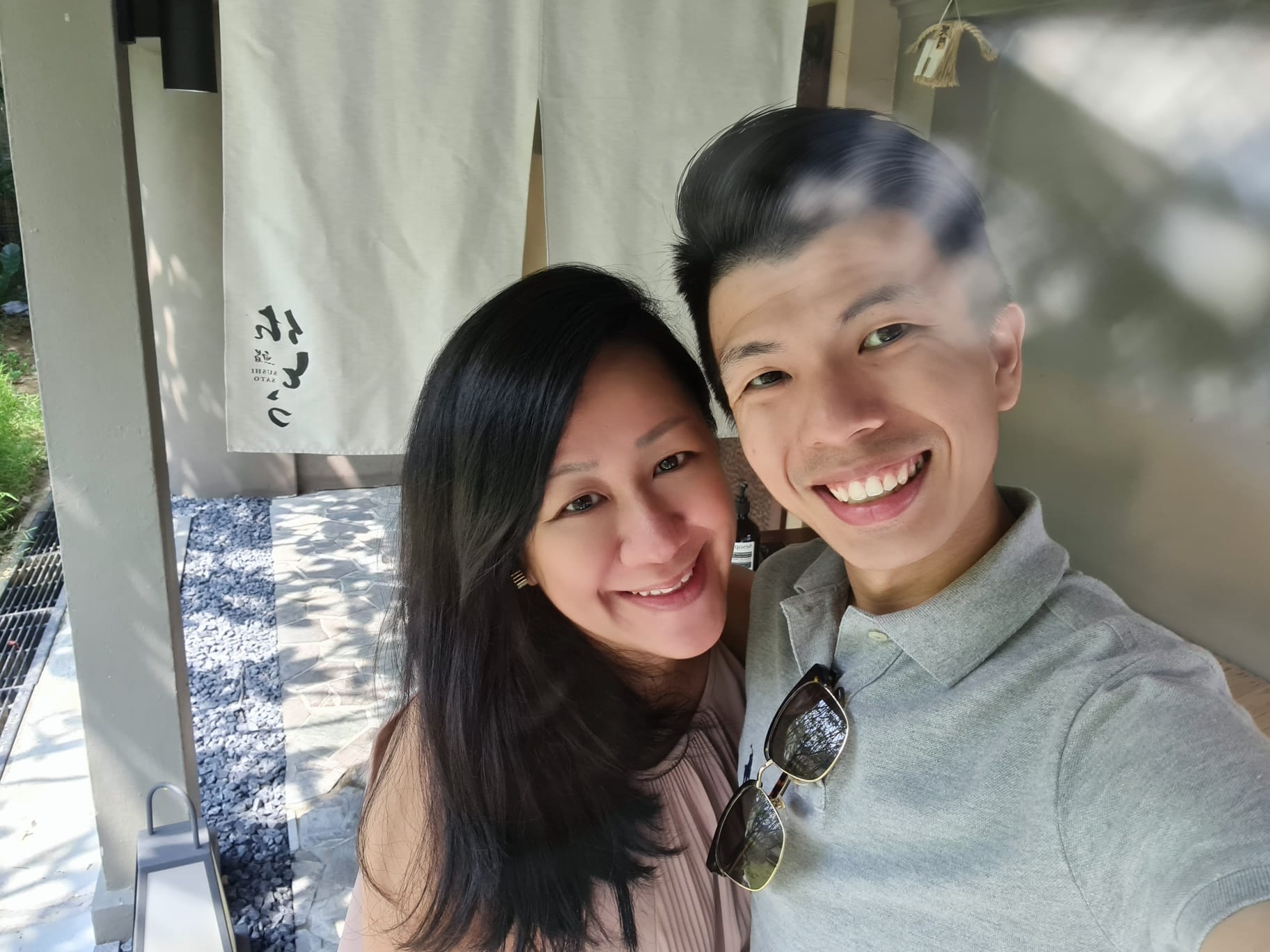 Beh and his wife co-founded Baker's Brew. Image courtesy of Beh.
Beh and his wife co-founded Baker's Brew. Image courtesy of Beh.
Seven years ago, Beh saw an opportunity to open a cafe in the north side of Singapore.
Beh and his wife enjoy cafe-hopping.
But living in the north part of Singapore, more specifically in the Sembawang area, they needed to travel quite a distance to get to their favourite spots which were usually in town.
Then they thought in unison: “Let's just create something special for the Northies.”
This was a “modest and innocent” idea, Beh said, implying that the idea wasn't well-thought through.
Anyways, the couple were already comfortable with their current jobs, he was a regular in the army and his wife was a tuition teacher.
Nonetheless, he decided to peruse a property website and stumbled upon a unit in Sembawang.
“I was immediately interested,” Beh admitted. In a matter of minutes, he contacted the agent and discussed getting the unit and the idea of starting a cafe slowly started becoming a reality.
But it quickly hit a dead end when they could not convert the unit into a cafe.
“This particular unit does not allow the change of use to a cafe use, because there was a restriction at the particular vicinity itself.”
So, they couldn’t get the licence to use the store to run a cafe.
“I’ll continue with my life,” Beh said to himself, giving up on the idea.
It took him no more than two weeks to hop back onto the property site and chance upon the same unit again.
This time, the unit “called out” to him, he said.
“If you don't take me down, you're missing out on something big in your life.”
But what could they do with a unit that didn’t allow dine-ins?
Ideas ran through his mind: “Maybe some sort of food takeaway? But what would people want?”
The answer: Cakes.
While it sounded like a good idea, neither Beh nor his wife had any baking experience.
Then an idea sparked:
“Let's create a studio that conducts baking classes (with external bakers) and a bakery that does takeaways. We were excited about that concept.”
And the next day they put down a S$10,000 deposit for the unit.
What Beh brings to the table as a non-baker
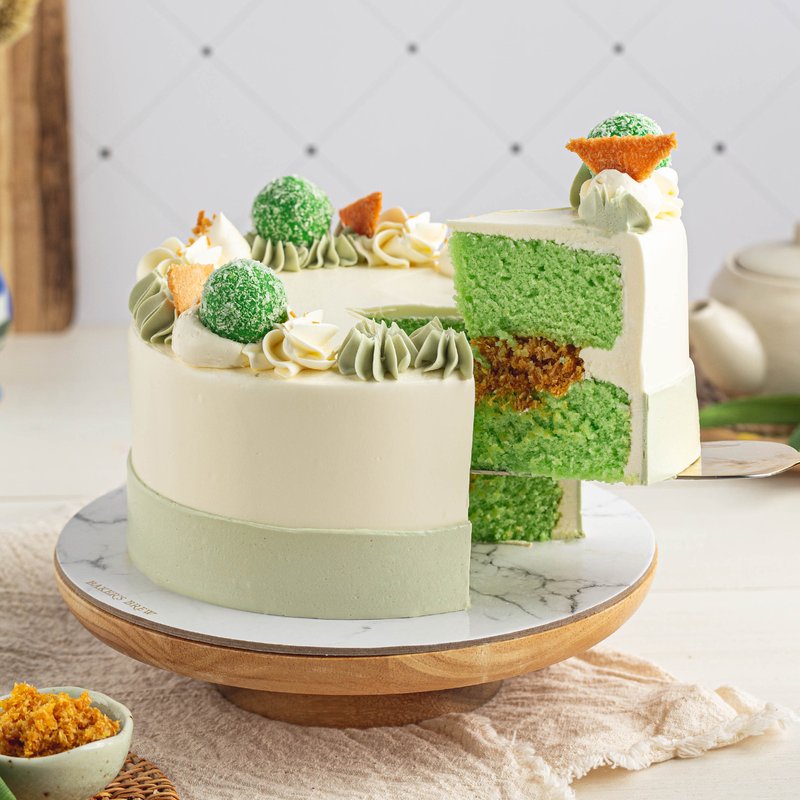 Baker's Brew's Ondeh Ondeh Cake.
Baker's Brew's Ondeh Ondeh Cake.
Before I spoke to Beh, I assumed that he was the baker behind Baker’s Brew – or at least I thought that he baked some cakes when he first started out the business.
Like most bakeries, from Famous Amos to local brands like Awfully Chocolate, they started with passionate bakers who wanted to take a step forward and start a business.
So imagine my surprise when I heard that Beh has zero experience in baking and never picked it up after that. On top of that, he had little to no close friends or family in the industry.
Being a total noob in the industry, he decided to run his ideas about the new venture by a renowned supplier of European baking equipment.
His conversation with the industry insider was discouraging, to say the least.
He said: “Why do you want to start this business? This business is so hard leh. You think it's very easy to make money, meh.”
At the end of their conversation, Beh said: “Okay, if I fail, I’ll let you know that I fail, but if I succeed, I will come back in the next couple of years to buy an oven from you.”
And that’s what he did two years later.
Still, it seemed like Beh had placed himself in a rather precarious position by jumping into an industry which he had no prior knowledge or experience in. But when I asked why he went ahead and started a bakery, he answered confidently that business is in his DNA.
“I have those very magical moments, when I see something that makes sense, I will seize the opportunity while it's hot. I think I have the business genes. I think I'm blessed in seeing business opportunities.”
With no time spent in the industry, he created a business strategy that would work for him.
50 per cent of the business is focused on customer acquisition or essentially “how to sell” his products – stuff like marketing the products to customers, handling the finances, handling staff and most importantly, making profits.
Beh’s adamant that these are things that he is good at.
His confidence in his entrepreneurial skills was sparked when the very enterprising Beh was just 11 years old.
In Primary Five, in order to get more pocket money, he created mini-games in school where he’d charge his friends 50 cents to play and win.
One of these games involved a dice and his friends had to roll it and land on a particular number. If they didn’t, they’d lose and he gained the money.
Seems like the odds were stacked against them.
He ran another “business” in secondary school as well.
He was quite a video game enthusiast. In one of the video games he played, he needed to have money in the games when buying equipment or gear that needed to be bought in actual cash.
Beh found a way to find another source where he got the “game money” at a lower price and sold it to his friends, earning the profits.
You could say his childhood experiences and the success he had made him much bolder.
It was that confidence that got him started or else, he wouldn’t have taken the first step to acquire the Sembawang unit, which kick-started Baker’s Brew’s journey.
Anyway, Beh said:
“Is it wrong to start a business without having the skill set in a particular industry? I will say that it's not.”
“But is it difficult?” I asked.
“Yes it is,” he said.
Outsourcing their bakers
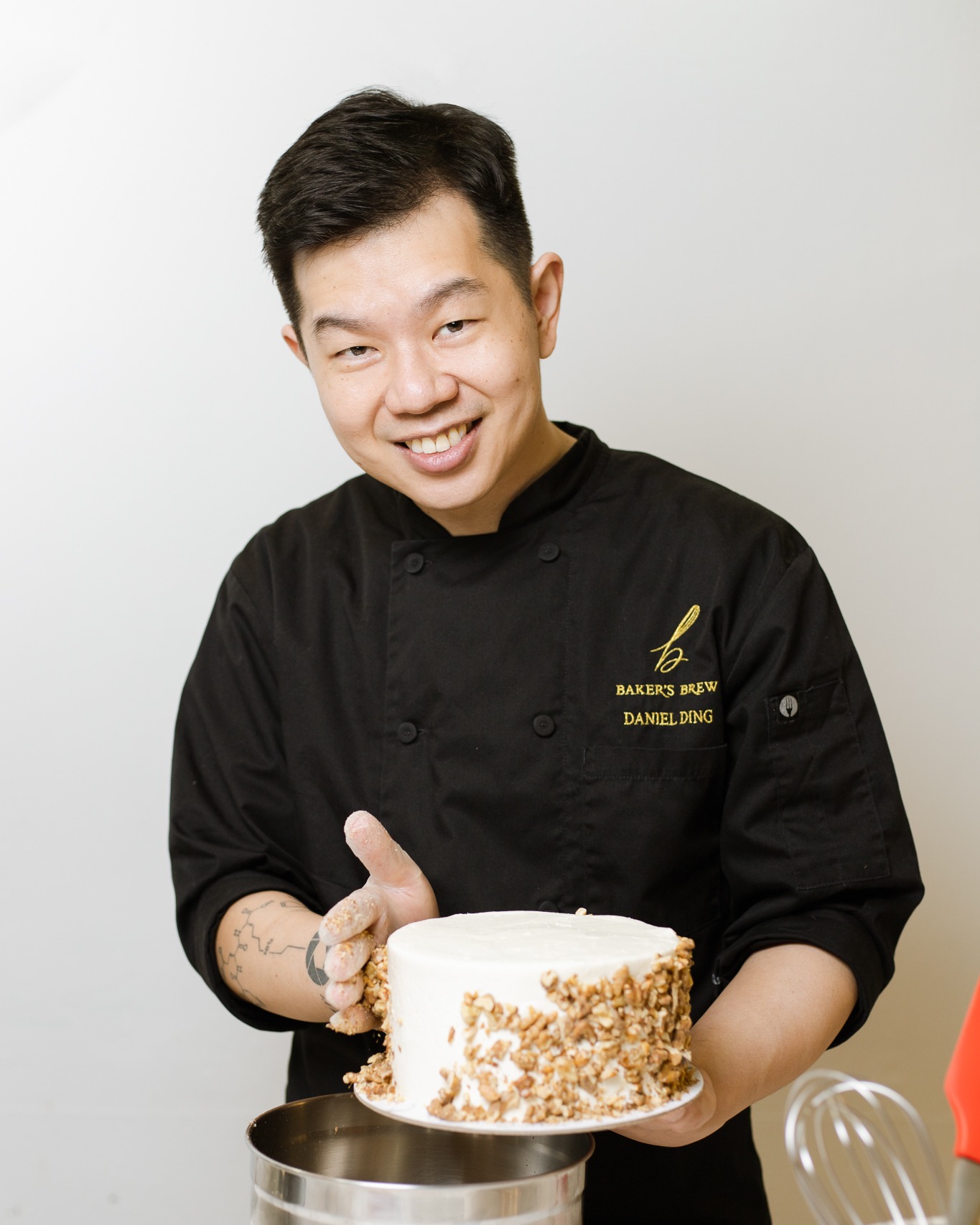 One of Baker’s Brew’s bakers, Daniel Ding.
One of Baker’s Brew’s bakers, Daniel Ding.
The other half of his business is what Beh calls the “creator profile”, which involves creating products and services. In this case, these are the cakes, the flavours, and getting creative with the designs and taste.
The duo felt pressured as they aimed to officially launch their store in three months from when they first got the unit.
But the two-man crew was missing an important asset - bakers.
“I don't think anyone thinks (of starting a) business this way. It is set up for failure.”
They went on Instagram to scour for talents.
“We spent a lot of time hunting people, hunting talents within the baking scene and going through a lot of Instagram handles, looking at home bakers, seeing whether they want to join us on board on this journey together, you know, creating a new baking studio.”
From there, they got their first two bakers who pioneered Baker’s Brew with them.
They were home bakers with zero industry experience as well, but with trust and collaboration, they made it work.
“I thought that it was quite a beautiful period of time where I found like-minded individuals and started working together.”
Together, they built up the brand and created Baker’s Brew’s most popular cakes you see today.
Their first flavour that won the hearts of their customers was Ondeh Ondeh Cake.

“Our first signature product was our Ondeh Ondeh Cake. (It) has been our signature since we incepted in 2015 till the present.”
Then they pushed the envelope a little further, coming up with a Coriander Cake in 2021.
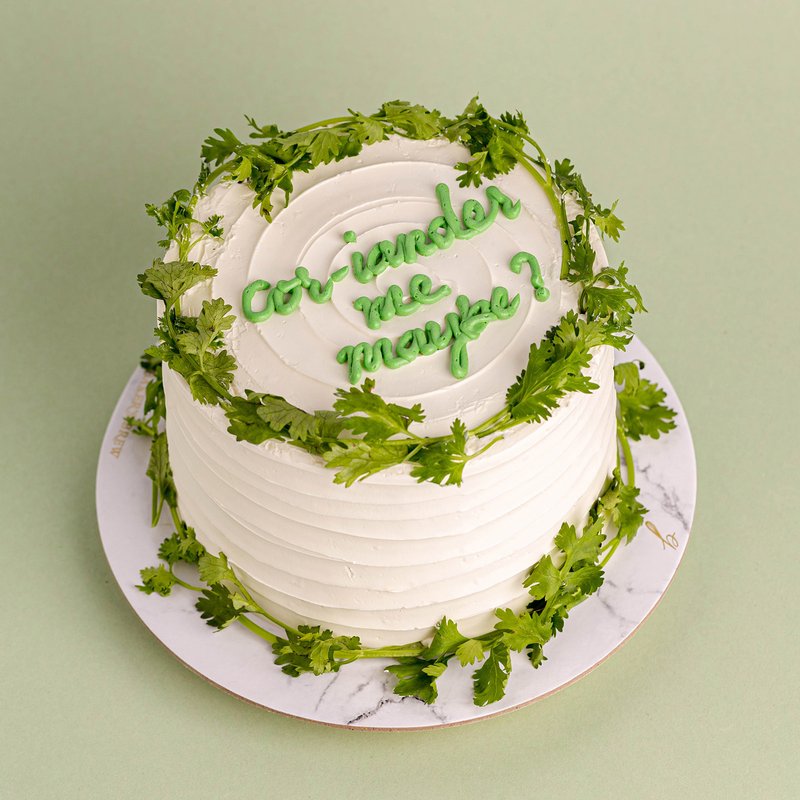 Baker's Brew's Coriander Cake.
Baker's Brew's Coriander Cake.
I had to ask: Do customers actually like it?
“Our Coriander Cake has been very well received during the launch and sold more than 100 per week. The feedback has been mixed where the coriander lovers said it will be even better with a stronger coriander flavour while on the other hand, it was surprisingly acceptable for people that generally don’t like coriander.”
In seven years, they grew from a four-man team to an almost 70-man team with 20 resident bakers. And from one store to seven.
Today, they sell over 10 cake flavours and other bakes like brownies, cupcakes, cookies and loaves. And they conduct over 20 different baking classes each month, most of which boast full attendance.

How Baker’s Brew gain traction
Like what was mentioned before, Beh focused on how to sell the bakes.
One of the most important things to Beh is getting word about the shop out there through marketing the brand.

“I think a lot of business owners always think: “I have the best products. I do it the best. And with the best, people will naturally come to my store.” But this is not true, people don't know you at all.”
What was his marketing strategy? Influencers.
Being thick-skinned helped with this.
He reached out to influencers who bake and asked them to be guest bakers when Baker’s Brew first launched.
He managed to get four influencers on board who helped “propel the business” in the first three months.
One of the most prominent influencers they’ve worked with is Jessica Loh who goes by the username Shiberty on Instagram.
Another way Beh gained traction was through using search engine optimization (SEO).
“Appearing on Google search engine is (playing the) long game.”
With limited funds at the start of the venture, he allocated about S$3,000 to pay an agency to kick-start Baker’s Brew’s SEO.
Spending that sum was quite substantial, but he felt it was completely necessary because as more people see the brand online, the more traction they get.
Today, Baker’s Brew sells about 100,000 cakes a year across their outlets.
As the customer base grew, the company had to grow alongside it.
From a team of four to now close to 70 staff in total was something that was hard to adapt to, said Beh.
The company started off having a “family dynamic”, where everyone knew everyone’s name, and their families and worked very closely together.
Now the workplace is “something else”, Beh said.
Still learning and growing
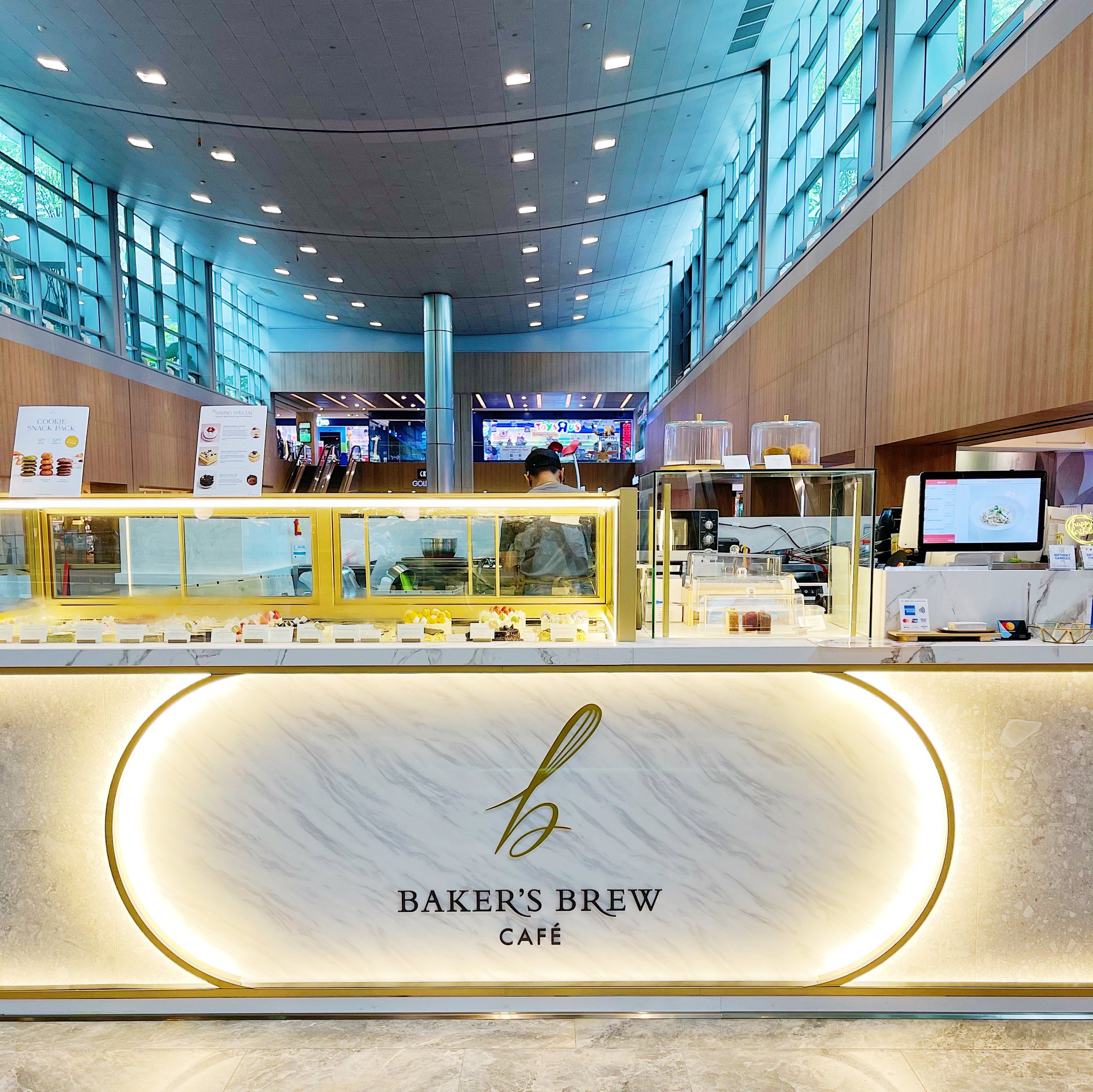
“When you double your manpower, headcount, when you open more stores, the complexity (of running a business) is multiplied by probably 200 times.”
That’s why he values employees whom he can trust.
He plays a big role in employing new staff, especially on the managerial level and expects three things:
- Maturity in the way they conduct themselves
- Humility to accept criticism
- Enthusiasm and being driven.
These are also the core values of the company culture.
“But it is easier said than done.”
Being the founder and managing director, he still faces manpower issues today. This is mainly because “there's no fixed way of handling people”, Beh said.
“Every employee that comes into your business is the opportunity for myself to reevaluate my leadership skills. I think this is an evergreen kind of lesson that these past seven years have taught me.”
So what else can we expect from Baker’s Brew? Beh said that they have plans to expand overseas, but he declined to go into details.
He is also in the talks with his bakers about potentially launching a range of baked products for pets.
A goal that is very close to Beh’s heart is for Baker’s Brew’s products to be an “entity of celebration”. In other words, when people plan a birthday party or baby shower or graduation party, they think of Baker’s Brew.
That seems like a very ambitious goal, I thought to myself initially.
But for someone who started a bakery with no baking experience or knowledge of baking and turned it into a thriving business, it might not be such a crazy idea after all.
So, to that, I would say, “Why not?”
Lessons on Leadership is a new Mothership series about the inspiring stories of Singapore’s business leaders and entrepreneurs, as well as the lessons and values we can learn from their lived experiences.
Quotes were edited for clarity. Top photo by Denise Tan.
If you like what you read, follow us on Facebook, Instagram, Twitter and Telegram to get the latest updates.
